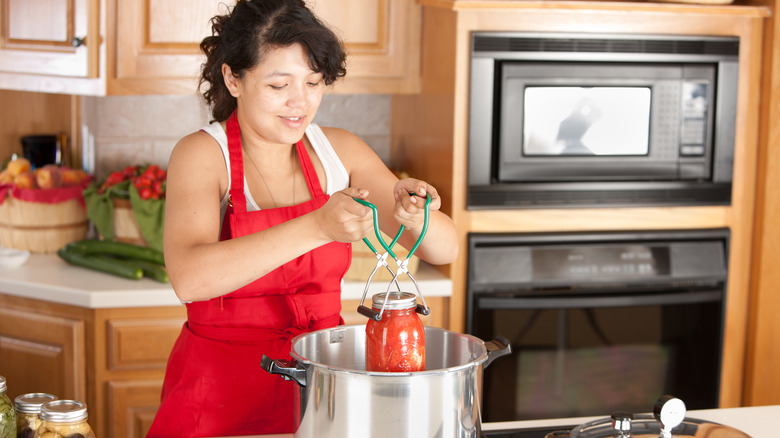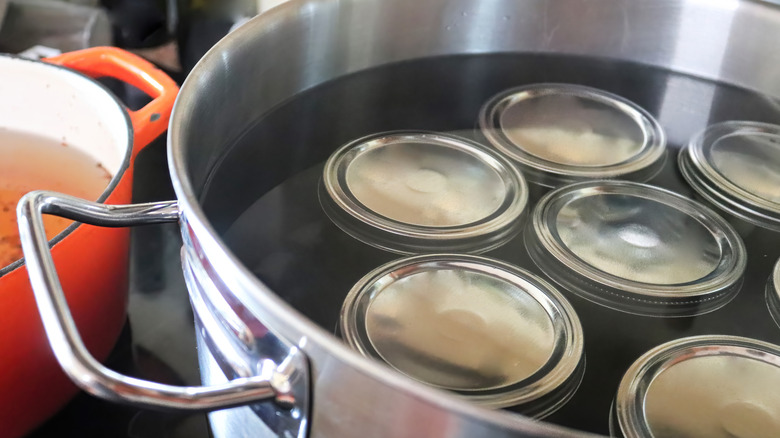Is It Dangerous To Re-Can Previously Canned Foods?
From tomato sauce to homemade applesauce, there is something special about canning your own veggies and fruits, especially items fresh from an organic market or your backyard garden. While canning is safe when done properly, the risk of botulism is very real if your cans aren't sealed properly. Specifically, proper storage is needed so bacteria, which causes botulism, can't spread and grow in your food. Botulism, a type of foodborne illness, is a toxin without taste, smell, or visible evidence, but a small amount can make you sick as it attacks the body's nerves causing muscle paralysis and difficulty breathing, according to the U.S. Centers for Disease Control and Prevention (CDC). It can be life-threatening. The CDC reports about 110 cases of botulism each year in the United States on average, and one of the main causes is foodborne pathogens. By properly sealing jars of canned food, whether at the manufacturer or in your kitchen, the bacteria risk is low, especially when using standard processing of jars.
Canning at home includes placing food-filled jars in a water bath of boiling water for at least 10 minutes or pressure canning them, as noted by the Clemson Cooperative Extension Home & Garden Information Center. Now imagine this: you process a set of jars, but one or two don't seal and that tell-tale pop of the lid doesn't happen. Does that mean the food must be tossed out? Or perhaps you've purchased large cans of food at a great bulk price and want to transfer the leftovers into jars and re-process. Is that safe?
Re-canning food that doesn't seal is an option, sometimes
When canning your own food, it's not uncommon for some jars to not seal properly. This could be due to a variety of factors such as cracks or a poorly fitting lid. When this happens, you have a couple of options. The first is to use that product the same day or within the next few days without canning it. Put it into the fridge right away until you need to use it.
You may be able to re-can the food if you've found it unsealed within 24 hours of the initial processing. In this case, the Clemson Cooperative Extension Home & Garden Information Center, shares it's best to remove the lid, look for any type of damage to the rim, change the jar if needed, and then re-process it using the standard processing time.
As for re-canning food from a bulk container, don't do it. There's no safe and tested method that ensures the heat distributes properly during the re-processing since softened foods arrange tighter into the jar, and under-processing carries a risk of foodborne illness. More so, it's not likely to taste all that great after being processed twice, and the bulk savings may not be worth it, shares the National Center for Home Food Preservation.
Canning foods at home is a great way to save some cash, eat more sustainably, and have greater control over your diet, but you can't get all of these benefits if your canned goods aren't safe to eat. So make sure all of your canned goods are properly sealed even if your re-canning them.

